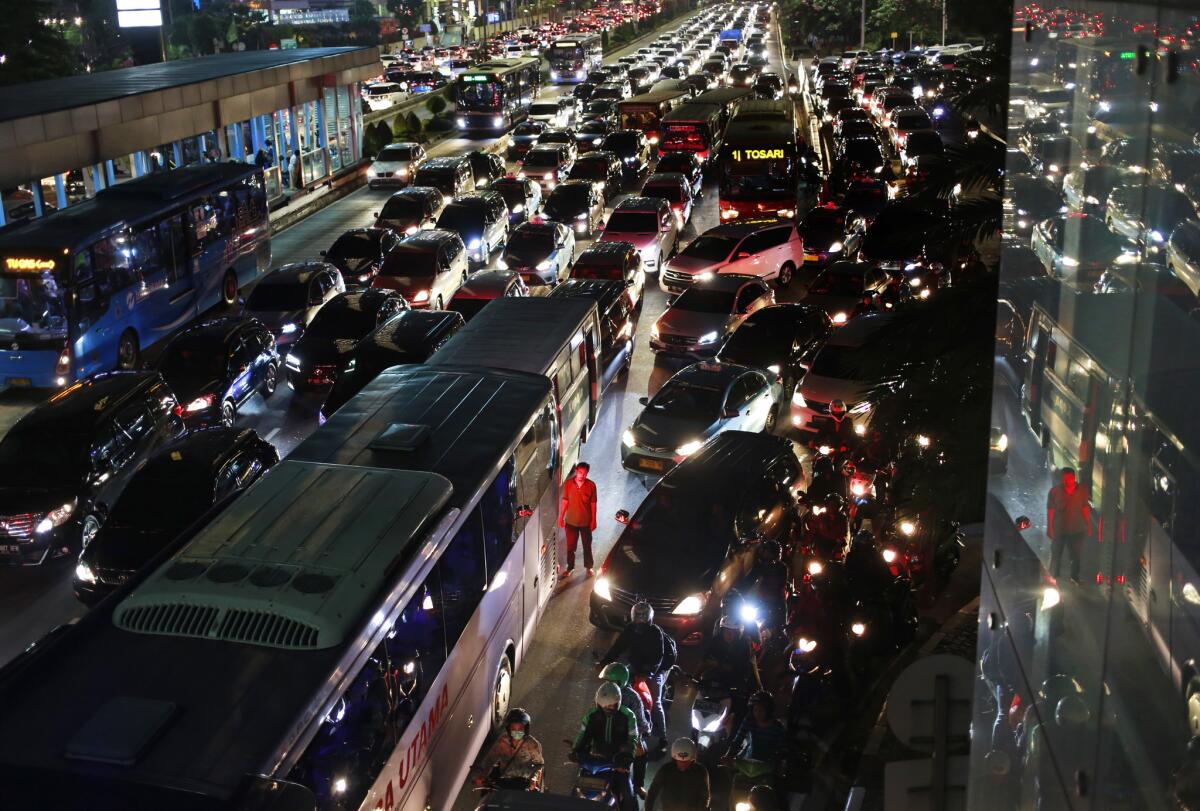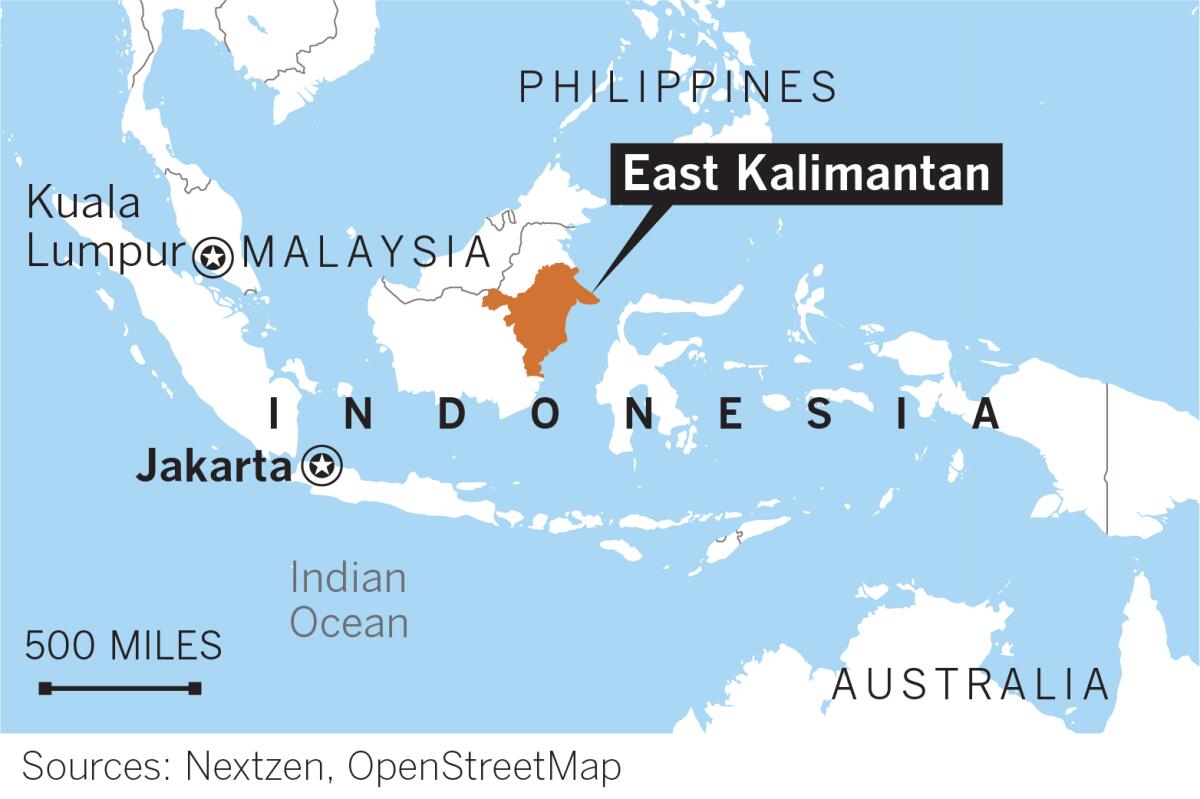Why is Indonesia moving its capital?

SINGAPORE — Indonesia was in search of a new city to replace its overcrowded and smoggy capital.
The site had to be centrally located and offer ample land to build a city from scratch — requirements similar to those when Nigeria, Brazil and even the United States selected their current capitals.
The Southeast Asian nation sprawled along the Pacific “Ring of Fire” also needed a place safe from earthquakes, volcanoes and tsunamis — a uniquely Indonesian problem that eliminated most parts of the country from contention.
One place, however, met those prerequisites. After months of speculation, Indonesian President Joko Widodo revealed Monday that East Kalimantan, a resource-rich province of tropical forest, was selected to replace the current capital, Jakarta.
If parliament approves, the world’s fourth most populous country could join a small club of nations since the 1900s to relocate their capital, a club that includes India, Australia and Myanmar.
Monday’s announcement brings Indonesia closer than ever to realizing a relocation plan that had been considered for decades by past leaders, including Sukarno and Suharto.
Here’s what you need to know about the current proposed relocation:
What’s the problem with Jakarta?
A trading post for Dutch colonialists starting in the 1600s, Jakarta is now home to 10 million residents — 30 million if you include the suburbs. It’s a heaving environmental mess with some of the worst air pollution and traffic congestion in the world. More troubling, parts of the metropolis are sinking more than 7 inches each year because of the depletion of underground water wells. The city is largely located below sea level and the government is racing to build walls to hold back the ocean. Flooding is common during the rainy months, adding to the misery of an overcrowded city on pace to become the world’s largest by 2030.
Development and political power in Indonesia are vastly uneven
Indonesia is a sprawling nation whose 270 million inhabitants are spread across three time zones along the equator on more than 17,000 islands, including tourist hot spots such as Bali. The country’s eastern and western ends are separated by more than 2,600 miles, which is about the distance between Los Angeles and New York. That vastness has left many parts of Indonesia neglected, highlighted by the fact that more than 80% of the country’s economic output comes from the main western islands of Java, where Jakarta is located, and Sumatra. Recent rioting in West Papua over racism underscores the underrepresentation that afflicts some provinces. Shifting the capital to a more central location is aimed at alleviating a bit of that disparity and, perhaps, burnishing Widodo’s legacy as he prepares to enter his second and final five-year presidential term in October.
“The economic gap between Java and outside Java continues to increase,” Widodo, known as Jokowi, said in his address, which was broadcast on YouTube.

Why East Kalimantan?
Kalimantan is the name of Indonesia’s portion of Borneo, an island slightly larger than Texas shared with Malaysia and Brunei that’s located near the center of Indonesia. East Kalimantan, 1,300 miles removed from Jakarta, is the most developed of Kalimantan’s five provinces. It features two of the region’s largest cities in Balikpapan and Samarinda and boasts modern infrastructure such as a pair of international airports, toll roads and seaports.
Another decisive advantage of East Kalimantan is its relative safety from natural disasters because it is buffered by the islands of Java to the south and Sulawesi to the east and rarely experiences earthquakes of any significance, particularly by Indonesian standards. The only volcano thought to be active on Borneo is on the Malaysian side of the border.
How soon will the move take place?
The new capital still needs approval from parliament, where Jokowi’s supporters hold a majority. The relocation and building of the city could cost at least $33 billion and spark a clamor for state contracts. The plan is for construction to begin in 2021 and government employees to start moving into their new offices by 2024 — though experts are skeptical a project of this magnitude will finish on time. The new city would start on about 700 square miles of government-owned land near Balikpapan and Samarinda.
Don’t count Jakarta out
The megacity will remain Indonesia’s financial center, meaning local politics will continue to serve as a national springboard for the foreseeable future. Jokowi was governor of Jakarta from 2012-14, helping launch his political profile.
“It’s too early to predict how the proposed new capital will shift the domestic political dynamics because we don’t know how long it will take to complete this highly ambitious project,” said Ben Bland, director of the Southeast Asia project at the Sydney, Australia-based think tank Lowy Institute. “But the governorship of Jakarta is likely to remain an important political stage because the city will still be Indonesia’s business capital and, far and away, largest city.”
More to Read
Sign up for Essential California
The most important California stories and recommendations in your inbox every morning.
You may occasionally receive promotional content from the Los Angeles Times.











